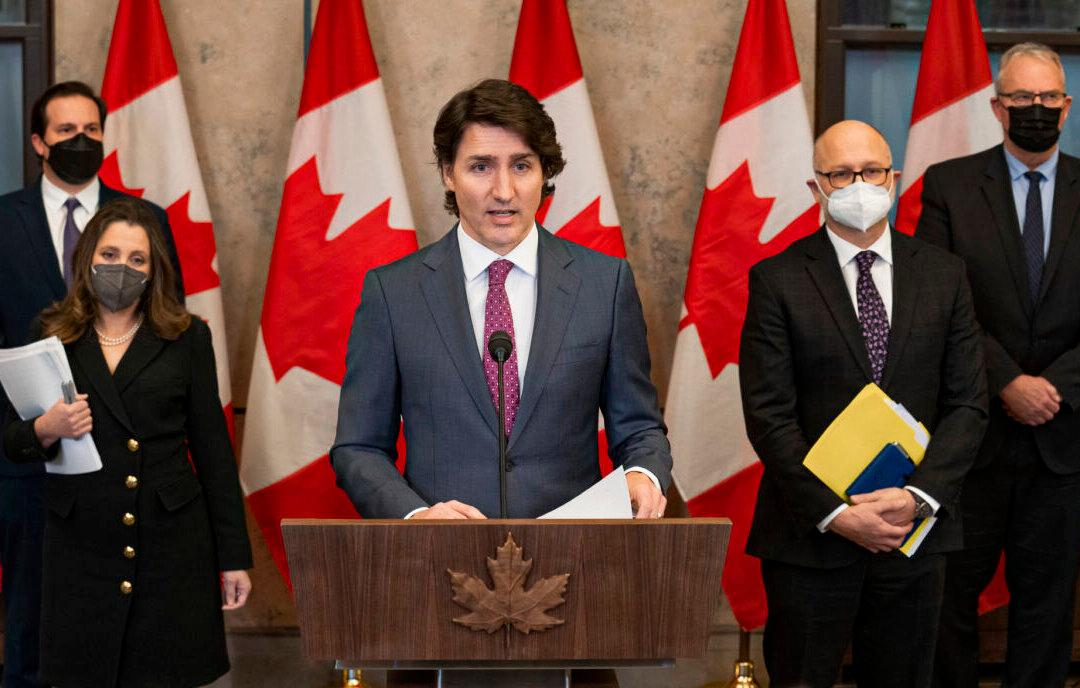The state of democracy in Canada has declined compared to the past, pushing it out of the top 10 most stable democracies in the world, according to a new report that places the blame in large part on the effects of COVID-19 restrictions on personal freedoms and related public sentiment.
While less than half of the world’s population live under some form of democracy, Canada also fell out of the world’s top 10 most stable democracies for the first time since The Economist began publishing the report in 2006, dropping to the 12th spot.
“Canada’s citizens feel that they have little control over their lives, a sentiment that has been compounded by pandemic-related restrictions on individual freedoms,” the report reads.
The EIU used data from the World Values Survey (WVS), which is gathered by a global network of social scientists under the non-profit group World Values Survey Association. The data show Canada’s scores dropping steeply in the “functioning of government” and “political culture” categories.
The report notes that Canada’s declining democracy score is reflected in citizens’ frustration with government leaders who have continued to reinstate pandemic-related restrictions since they were first rolled back in the summer of 2020. Other citizens reported difficulties accessing the federal government’s COVID-19 relief benefits.
According to the WVS data, just 10.4 percent of Canadians felt that they had “a great deal” of freedom of choice and control, while only 23.5 percent had “a great deal” or “quite a lot” of confidence in political parties.
The EIU’s report comes as thousands of Canadians have joined the “Freedom Convoy” movement to protest COVID-19 restrictions and vaccine mandates that has been ongoing in Ottawa since Jan. 29. The protest in Canada’s capital also sparked parallel demonstrations at border crossings in Alberta, Manitoba, and Ontario.
On Feb. 14, Prime Minister Justin Trudeau invoked the Emergencies Act for the first time in Canada’s history, which gives the federal government sweeping temporary powers to handle border blockades and protests against pandemic restrictions.
China Challenge
The report is titled “Democracy Index 2021: the China Challenge” as it focused on the question of how much of a challenge China’s political model poses to Western democracies and the world.China is classified as an “authoritarian regime” in the Democracy Index. The country scored 2.21 out of a scale of 10, down from 2.97 in 2006.
China scored 0.88 for the civil liberties category—one of the lowest rankings of the 167 countries surveyed.
“There is no free print, broadcast or social media, no freedom of expression and there are restrictions on the internet,” the report said. “There are no free trade unions, no independent judiciary and no real equality before the law. The state does not practice religious tolerance and routinely uses torture.”
The report noted how CCP leaders often praise their authoritarian political model compared to the Western electoral democracy model, which they say “produces inferior leaders, time-wasting deliberations and a lot of gridlock.”
Their main claim that the Chinese system is superior to their Western counterparts is that it facilitates fast and efficient decision-making as well as long-term planning to maximize economic returns, stability, and security. This efficiency, they said, depends on the elimination of any mechanism of democratic accountability.
The report highlights that China’s authoritarian political system has led to high levels of corruption.
Stunning examples of egregious corruption among Chinese officials in recent years included the case of Xu Caihou, a former vice-chairman of the Central Military Commission. Caihou was arrested in 2014 after authorities discovered cash weighing more than a metric tonne stacked up in the 20 square metre basement of his house.
“Insulated from the public, China’s elites are often self-serving, and abuse of power is not uncommon,” the report reads.
Given the inherently unattractive features of the Chinese political system, the EIU says how far the country succeeds in undermining Western democracies in the coming decades will depend a great deal on the ability of the West to revitalize its own democratic model.





